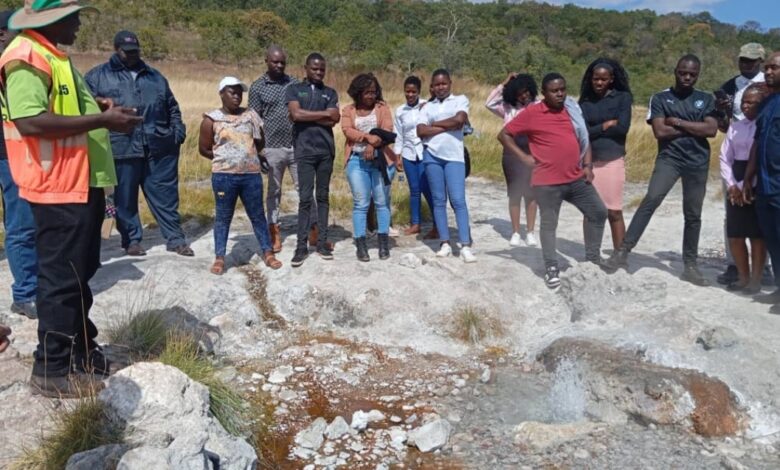Binga Youth Rise to Protect Wetlands: EU-Funded Project Spurs Eco-Action in Zimbabwe’s Forgotten Corner

Bwami Chonga Mudimba
In a powerful grassroots initiative backed by the European Union, youth clubs across Binga District have united to champion the protection of Zimbabwe’s wetlands, vital ecosystems under increasing threat from climate change and neglect.
The event, a “knowledge clinic” organized under the Youth Collective Action for Social Transformation (YCA4SOTRA) project, brought together young leaders with environmental experts to explore sustainable futures for their communities.
Spearheaded by the Women’s Institute of Leadership Development (WILD) in collaboration with the Zimbabwe Youth Council (ZYC), the clinic offered more than just education—it ignited a movement. Youth from Binga’s diverse wards were equipped with practical knowledge about wetlands’ ecological roles in climate regulation, biodiversity preservation, and water purification.
Phainos Mudimba, Binga’s District Environment Officer, stressed the importance of local youth becoming custodians of their environment. “We want youths to have the skills to preserve wetlands. These are not just swamps; they’re life-supporting ecosystems,” he told participants, highlighting traditional beliefs once tied to sacred natural sites like the Chibwatata hot springs, historically used for rainmaking rituals.
But the clinic wasn’t just about knowledge—it became a platform for action and advocacy.
Youth leaders voiced growing frustration over being excluded from key decision-making spaces, especially the upcoming Ramsar Convention on Wetlands scheduled for July 2025 in Victoria Falls. Despite Binga housing over 40 registered wetlands, young residents feel sidelined. “It is unjust,” several participants noted, arguing that their communities live the realities policymakers often only theorize about.
ZYC Matabeleland North Chairperson Mbuzibede Munkuli championed youth participation in policy-making: “My vision is to see every youth in the province involved in decision-making. Government must open the door to young voices.”
The clinic’s outcome was ambitious and forward-looking. Youth clubs collectively drafted an action plan to protect wetlands, and more importantly, established groundwork to form a district-wide youth association. “Binga is the mother of wetlands,” said Tumusumpule Nyelele. “We must unite to protect them.”
Among the proposals was a bold new idea: adopt-a-wetland for eco-tourism. By transforming local wetlands into eco-tourism hubs, youth hope to generate income, create green jobs, and foster environmental stewardship. This aligns with the broader vision of WILD, which aims to empower youth and women economically through climate-smart initiatives.
Knowledge Khumalo, Project Officer at WILD, explained the broader scope: “The EU-funded project is implemented with partners including SAYWHAT, Save the Children, and ZYC. We want youth to act, innovate, and lead. Wetlands are a frontline defense against climate change, and young people must be at the center of conservation.”
As the world prepares for Ramsar 2025, Binga’s youth are not waiting for a seat at the table—they’re building their own. Through advocacy, innovation, and action, these young leaders are reclaiming their right to shape Zimbabwe’s environmental future.
And they’ve made one thing clear: you can’t talk about wetlands without talking to Binga.





